Complete Solutions to Illustration of chapter ELECTRIC FLUX AND GAUSS LAW of Class 12 book with complete answers and questions
| Class 12 | PHYSICS |
| Chapter | ELECTRIC FLUX AND GAUSS LAW |
| CENGAGE PHYSICS | Illustration |
| Number Of Questions | 17 |
| Academic Year | 2023-24 |
A point charge Q is placed at the corner of a square of side a. Find the flux through the square.
View SolutionFind out the flux through the curved surface of a hemisphere of radius R if it is placed in a uniform electric field E as shown in figure
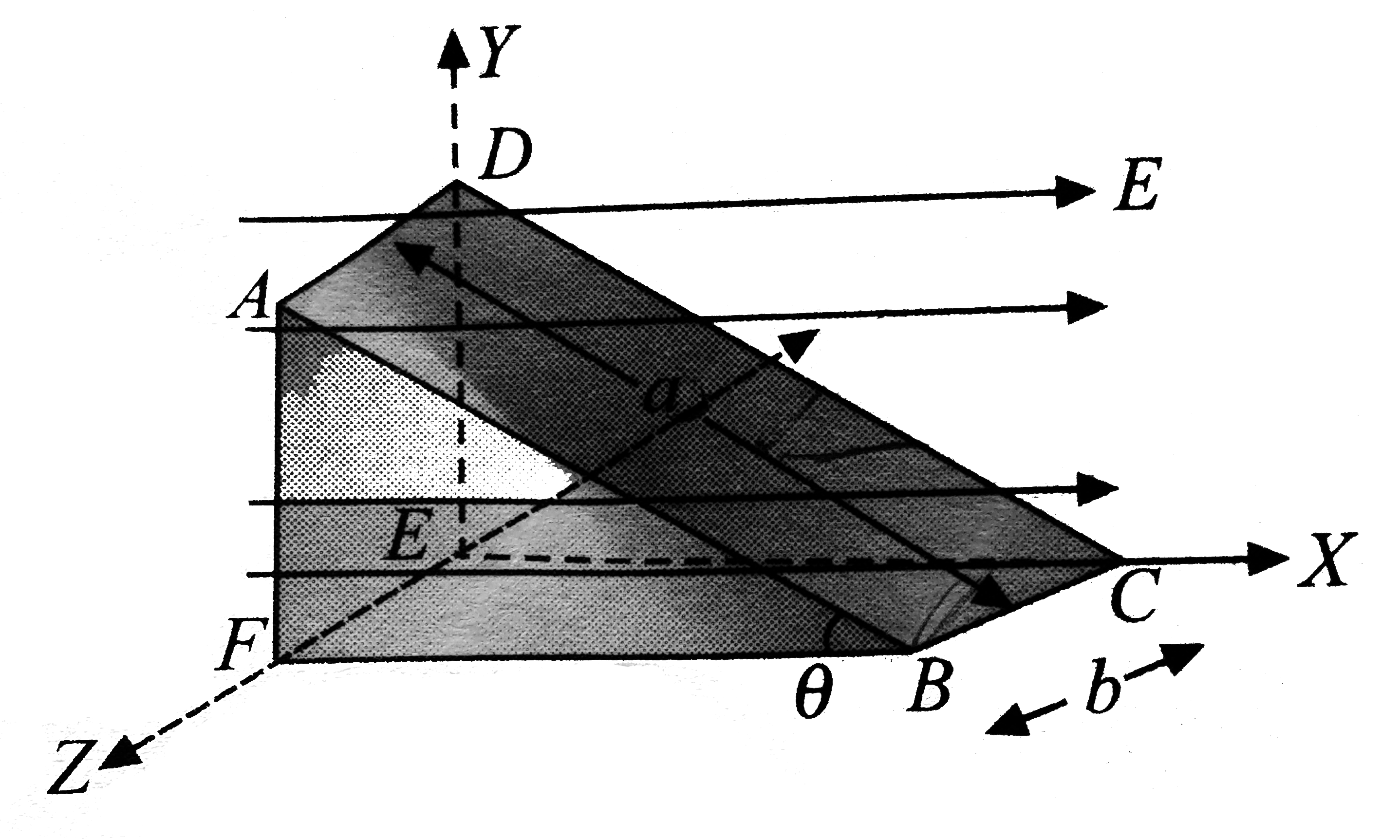
View SolutionFind the flux of the electric field through each of the five surfaces of the inclined plane as shown in figure. What is the total flux through the entire closed surface?

View SolutionConsider a cylindrical surface of radius R and length l in a uniform electric field E. Compute the electric flux if the axis of the cylinder is parallel to the field direction.
View SolutionA charge Q is placed at a distance `a//2` above the centre of the square surface of edge a as shown in the figure

The electric flux through the square surface is :
View SolutionIn figure, a charge q is placed at a distance `delta rarr 0` near one of the corners of a cube of edge I on a line of symmetry along diagonal.
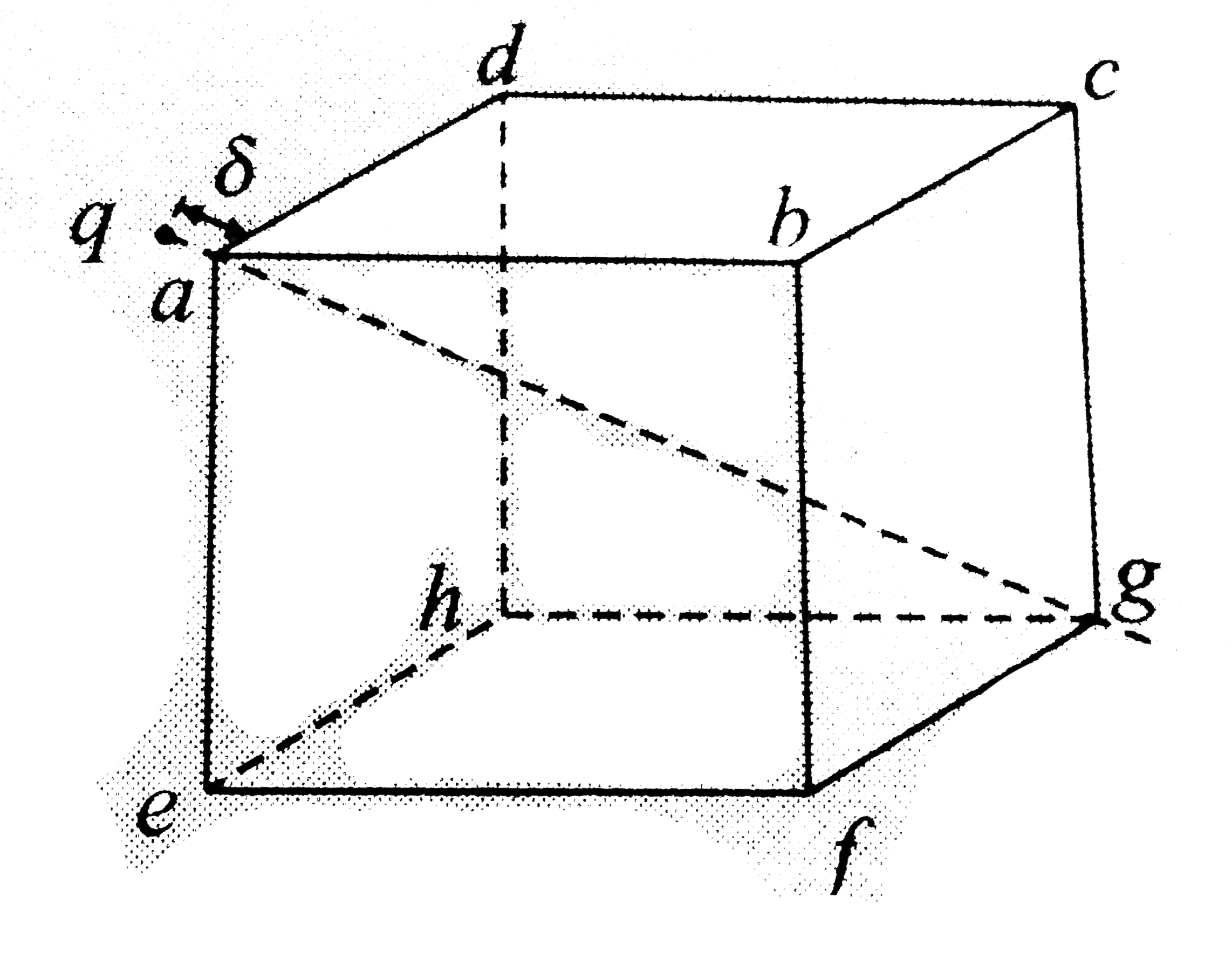
1. What is the flux through each of the faces containing the point a?
2. What is the flux through the other three faces?
View Solution`S_1` and `S_2` are two hollow concentric spheres enclosing charges `Q` and `2Q`, respectively, as shown in figure.
i. What is the ratio of the electric flux through `S_1` and `S_2`?
ii. How will the electric flux through sphere `S_1` change if a medium of dielectric constant 5 is introduced in the space inside `S_1` in place of air.
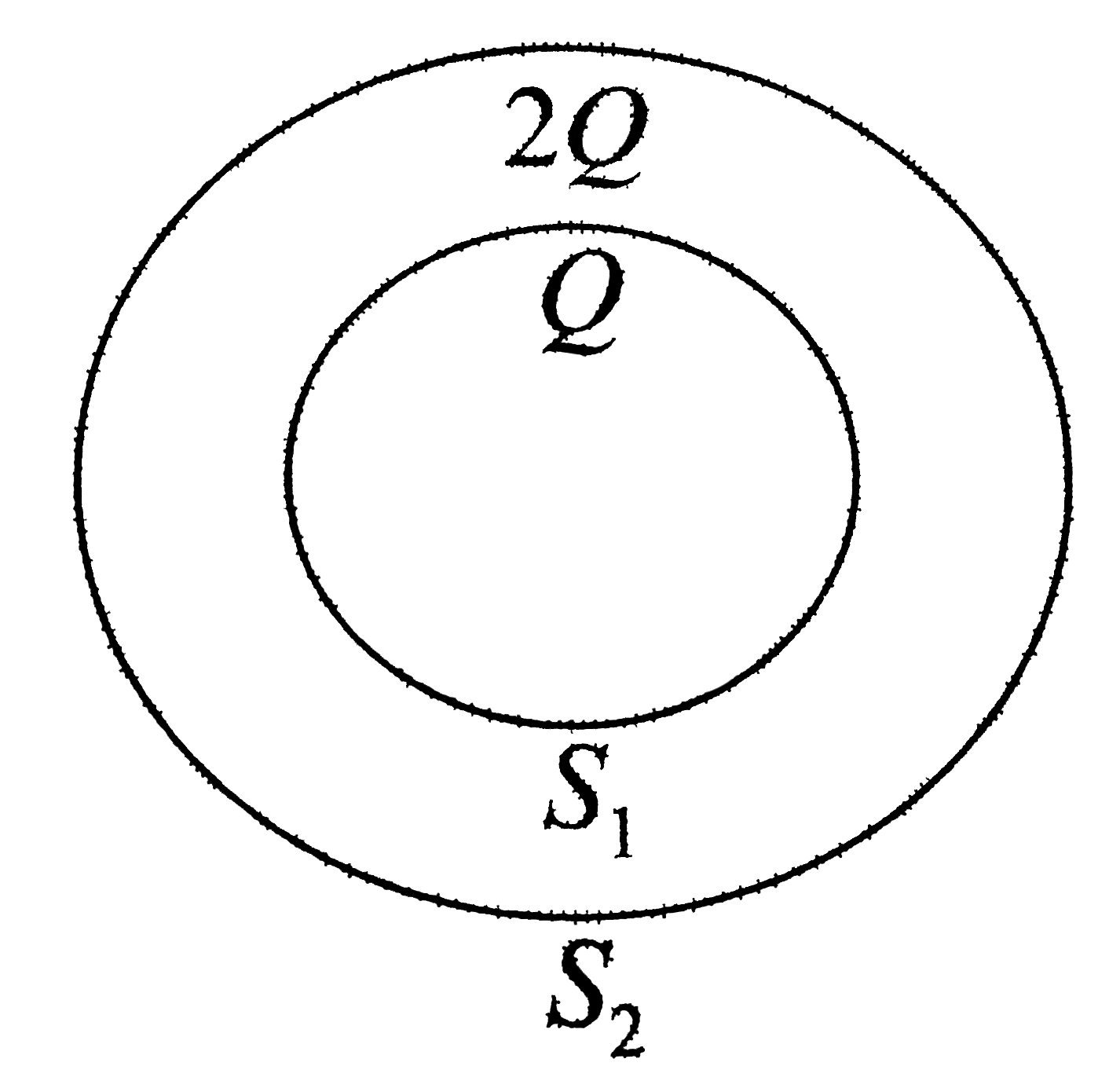 .
.
View SolutionA cube of side l has one corner at the origin of coordinates and extends along the positive `x-,y- and z-axes.` Suppose that the electric field in this region is given by `vec E = (a+by)hatj`. Determine the charge inside the cube (a and b are some constants).
View SolutionA point charge +Q is placed at the centre of an uncharged spherical conducting shell of inner radius a and outer radius b.
i. Find the electric field for `rlta`.
ii. What is the magnitude and sigh of the induced charge q' on the inner shell surface?
iii. What is the electric field at points `rgtb`?
iv. What id the surface charge on the outer surface of the conductor?
View SolutionA long, straight wire is surrounded by a hollow metal cylinder whose axis coincides with that of the wire. The wire has a charge per unit length of `lambda`, and the cylinder has a net charge per unit length of `2lambda`. From this information, use Gauss's law to find (i) the charge per unit length on the inner and outer surfaces of the cylinder and (ii) the electric field outside the cylinder, a distance r from the axis.
View SolutionProve that if an isolated (isolated means no charges are near the sheet) large conducting sheet is given a charge, then the charge distributes equally on its two surfaces.
View SolutionIf an isolated infinite plate contains a charge `Q_1` on one of its surfaces and a charge `Q_2` on its other surface, then prove that electric field intensity at a point in front of the plate will be `Q//2Aepsilon_0`, where `Q = Q_1+Q_2`
View SolutionTwo conducting plates A and B are placed parallel to each other. A is given a charge `Q_1` and B a charge `Q_2`. Prove that the charges on the inner surfaces are of equal magnitude and opposite sign.
View SolutionTwo identical metal plates each having surface area A, having charges `q_1 and q_2`, are placed facing each other at a separation d. Find the charge appearing on
surface (1),(2),(3), and (4). Assume the size of the plate is much larger than the separation between the plates.
View SolutionFigure shows three metallic plates with charges Q, 4Q, and -Q, respectively. Determine the final charges on all the surfaces.
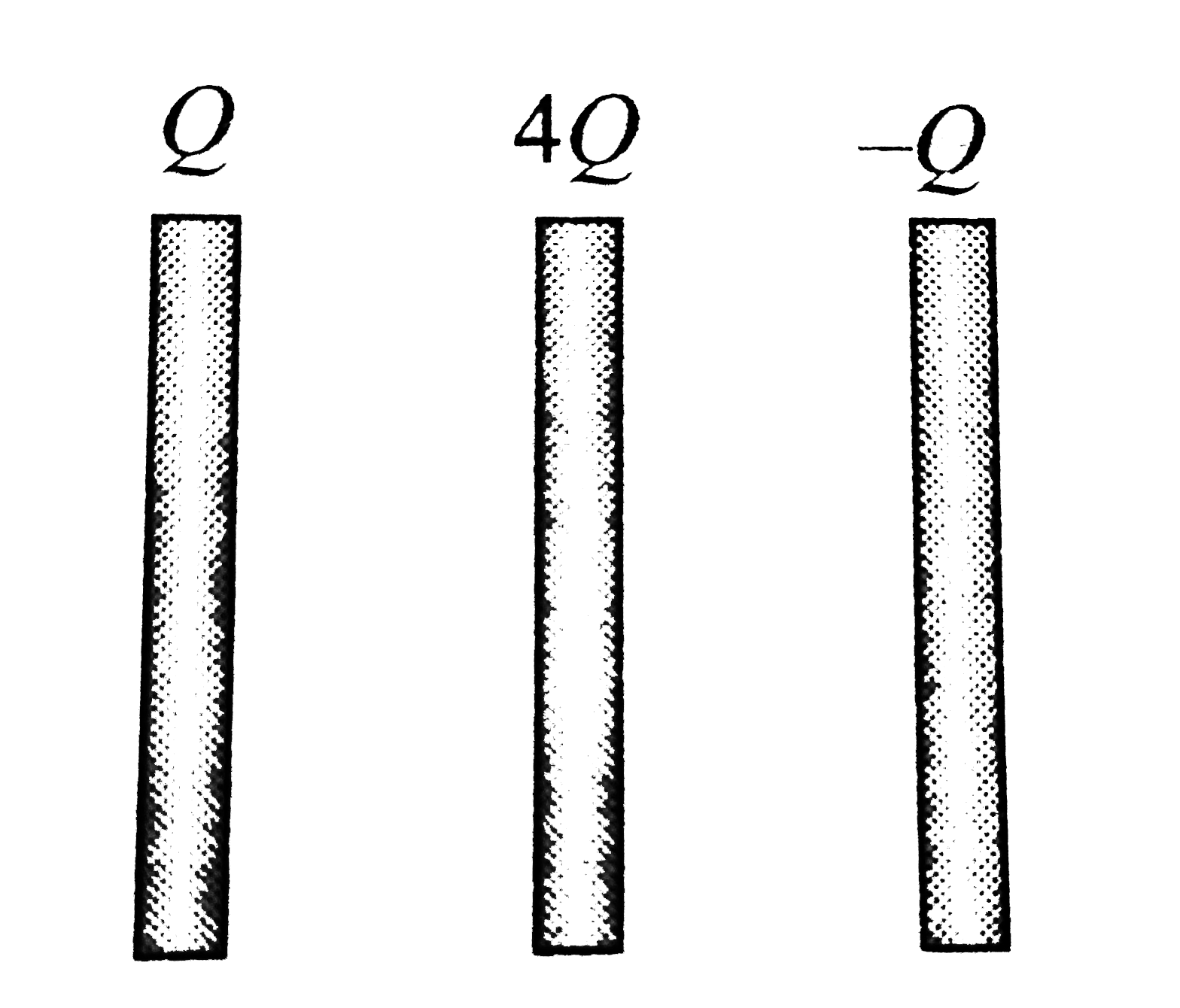
View SolutionAn isolated conducting sheet of area A and carrying a charge Q is placed in a uniform electric field E, such that the electric field is perpendicular to the sheet and covers all the sheet. Find out the charges appearing on its two surfaces.
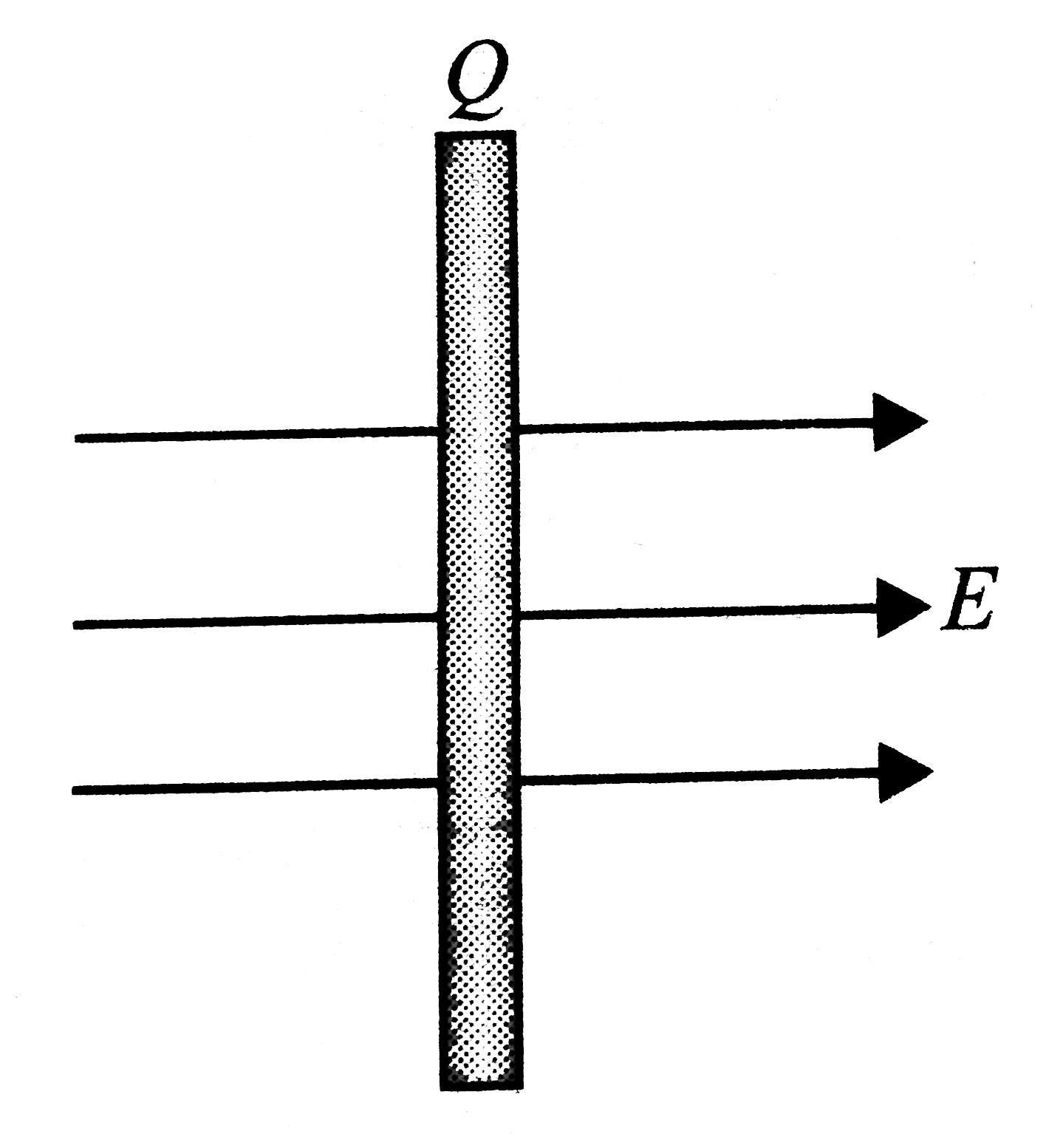
View SolutionThree large conducting sheets placed parallel to each other at a finite distance contain charges `Q,-2Q, and 3Q`, respectively. Find the electric fields at points A, B, C, and D.
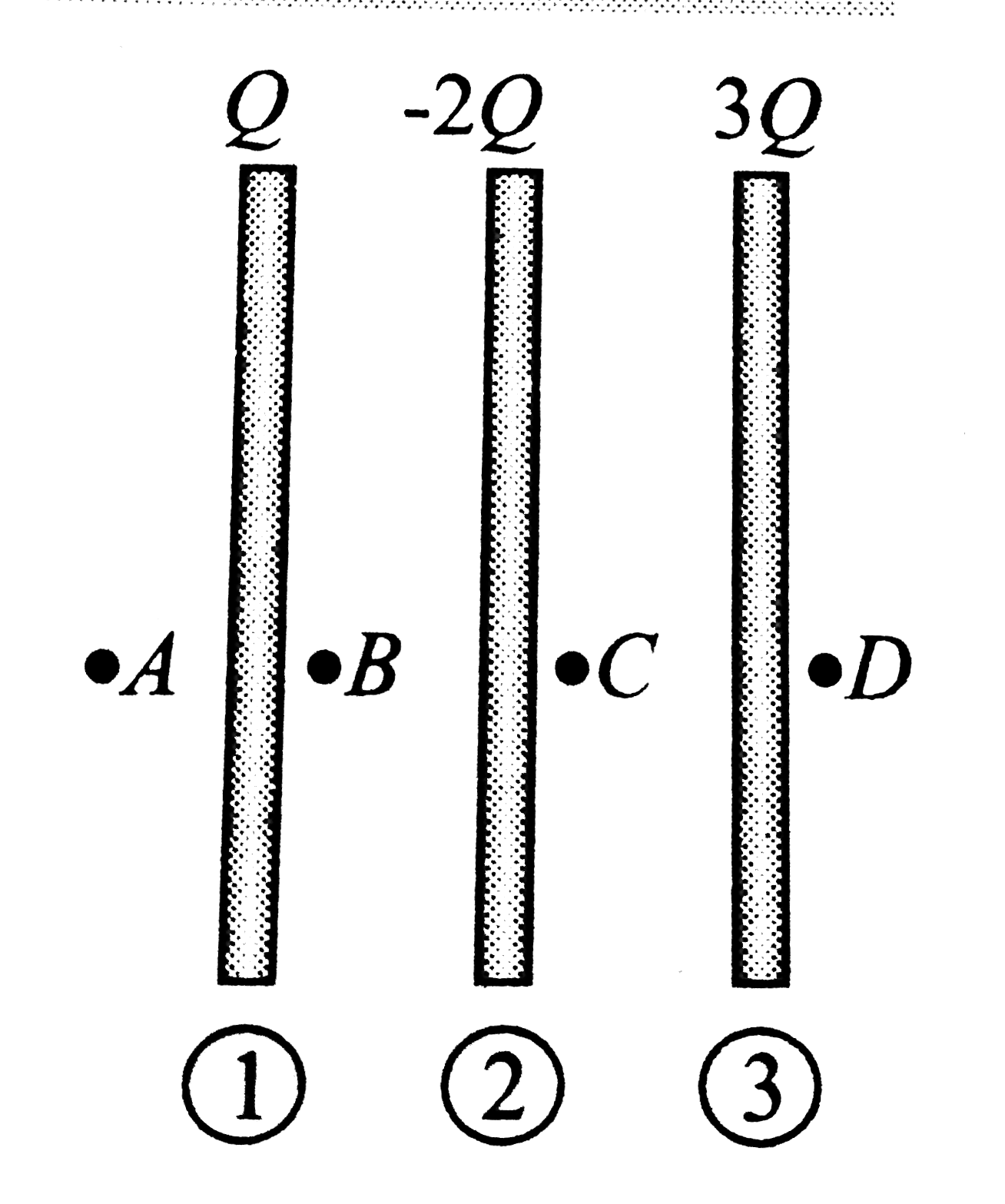
View Solution
Illustration questions and complete solutions for chapter ELECTRIC FLUX AND GAUSS LAW of CENGAGE PHYSICS (ENGLISH) of Class 12